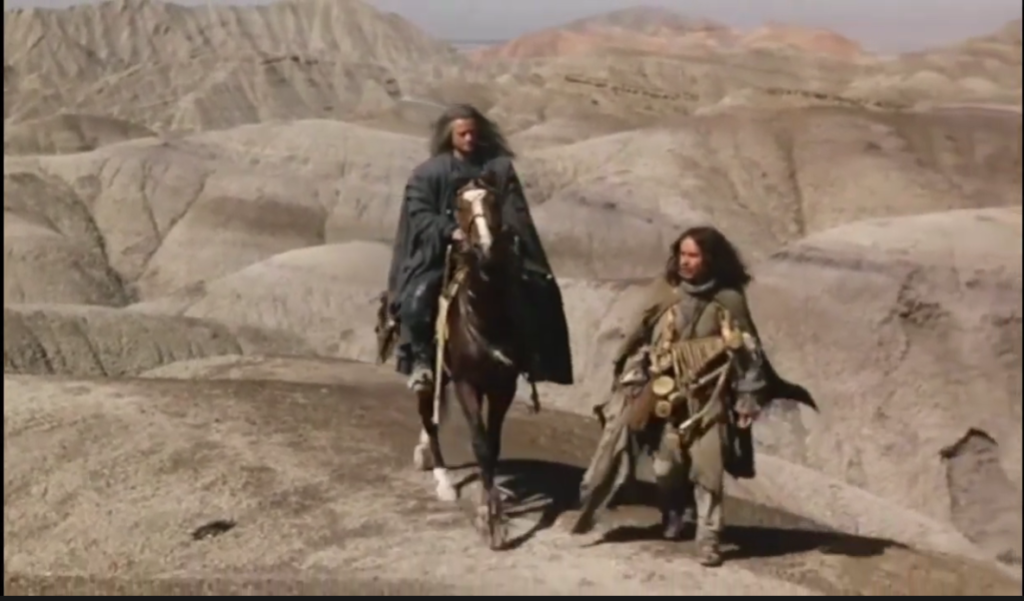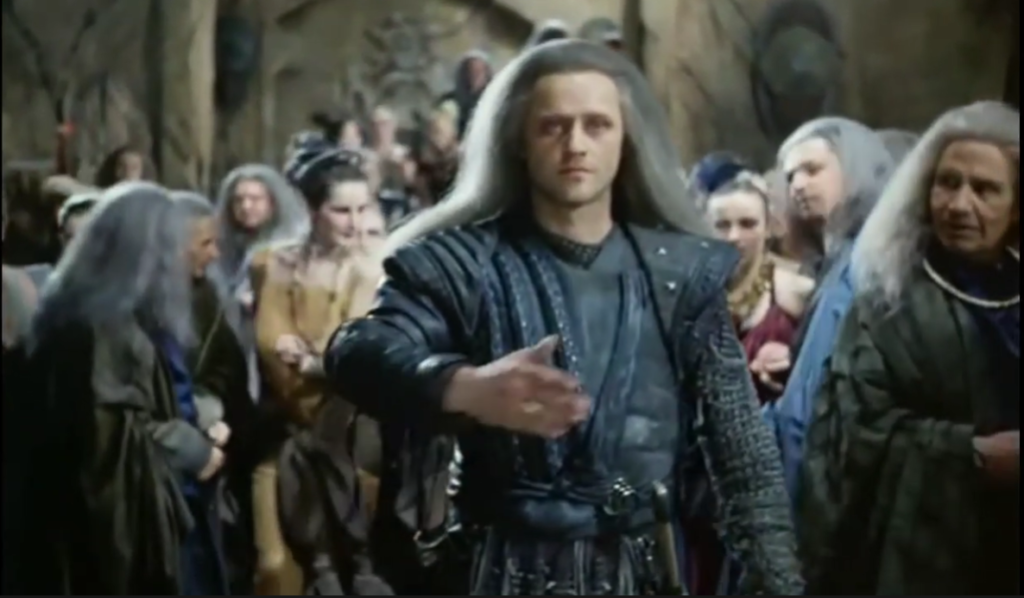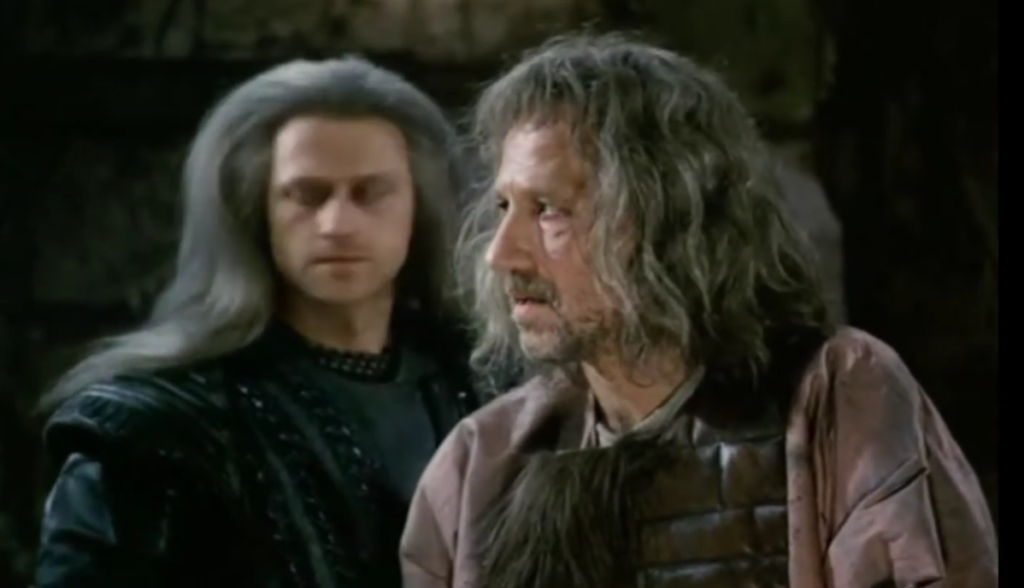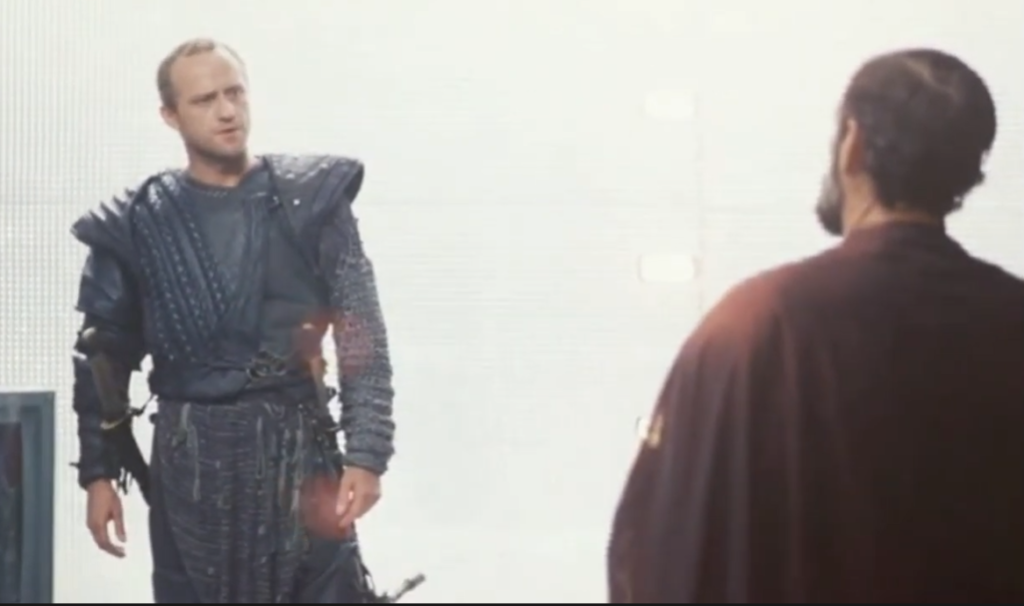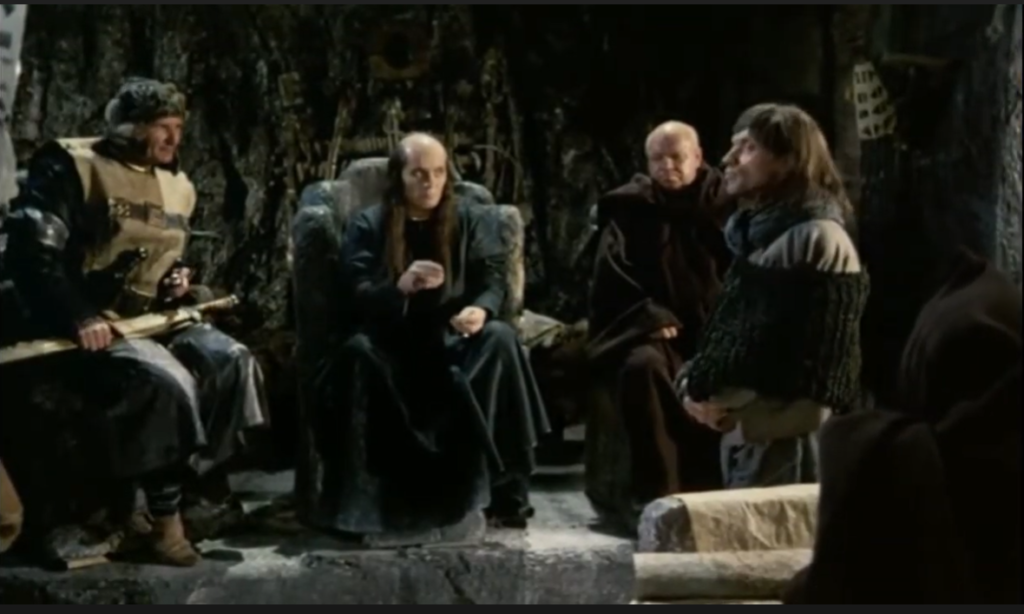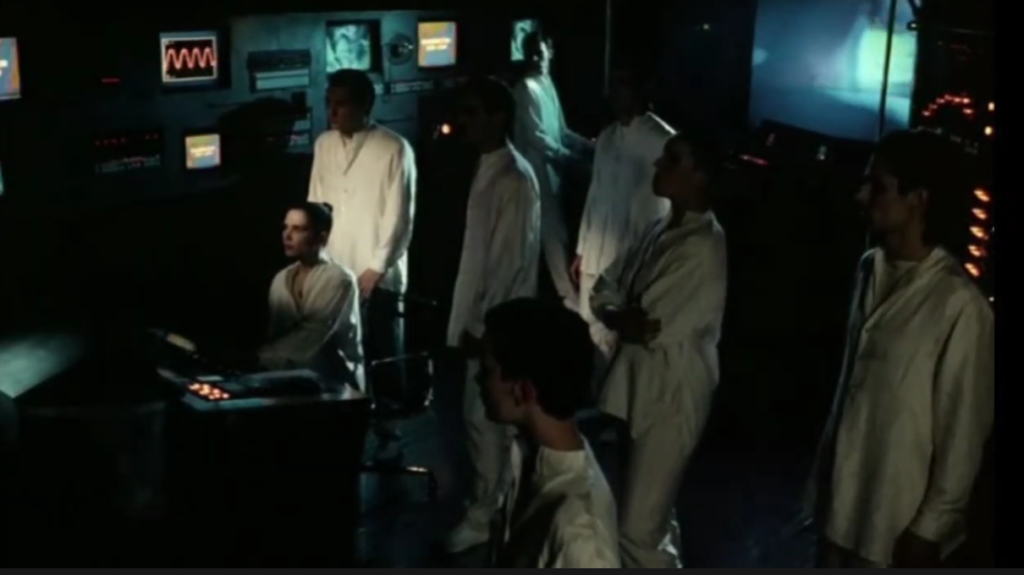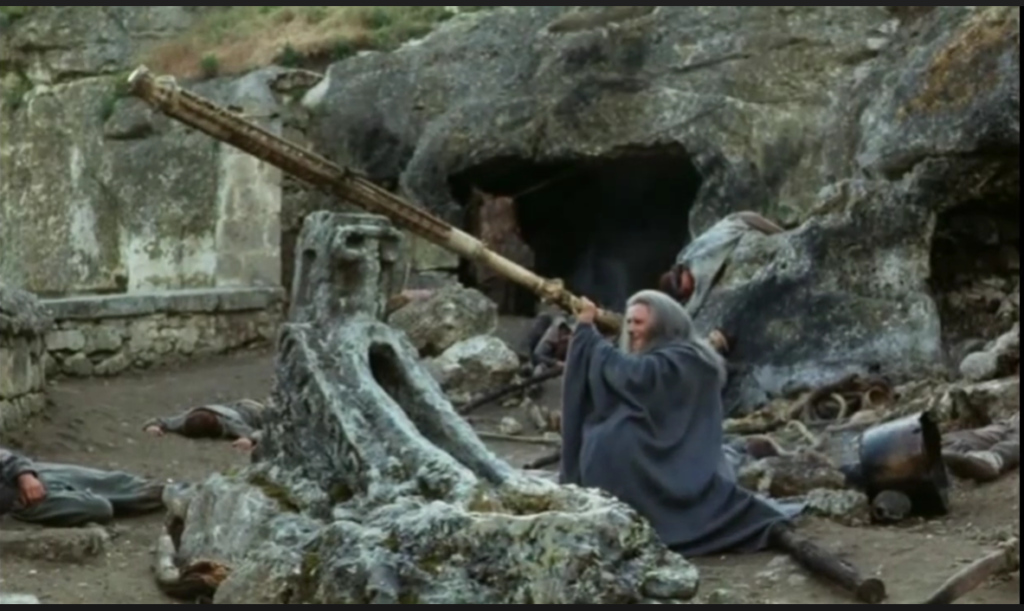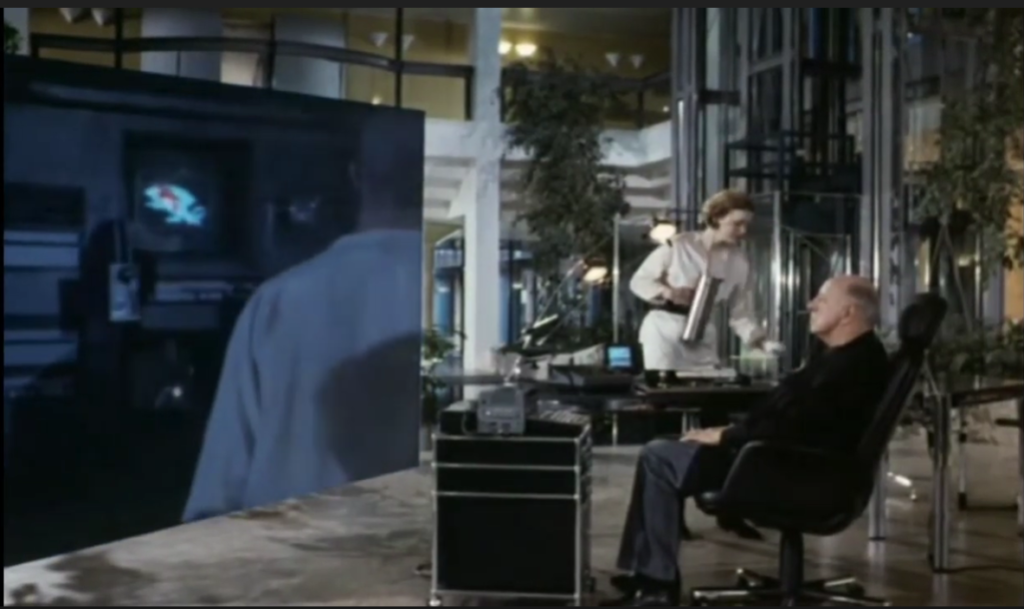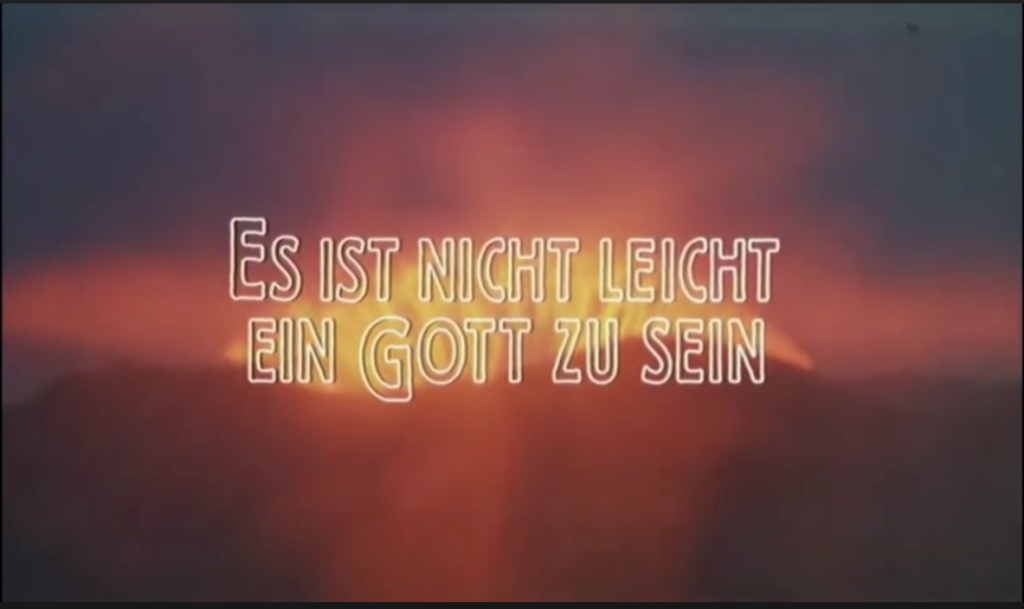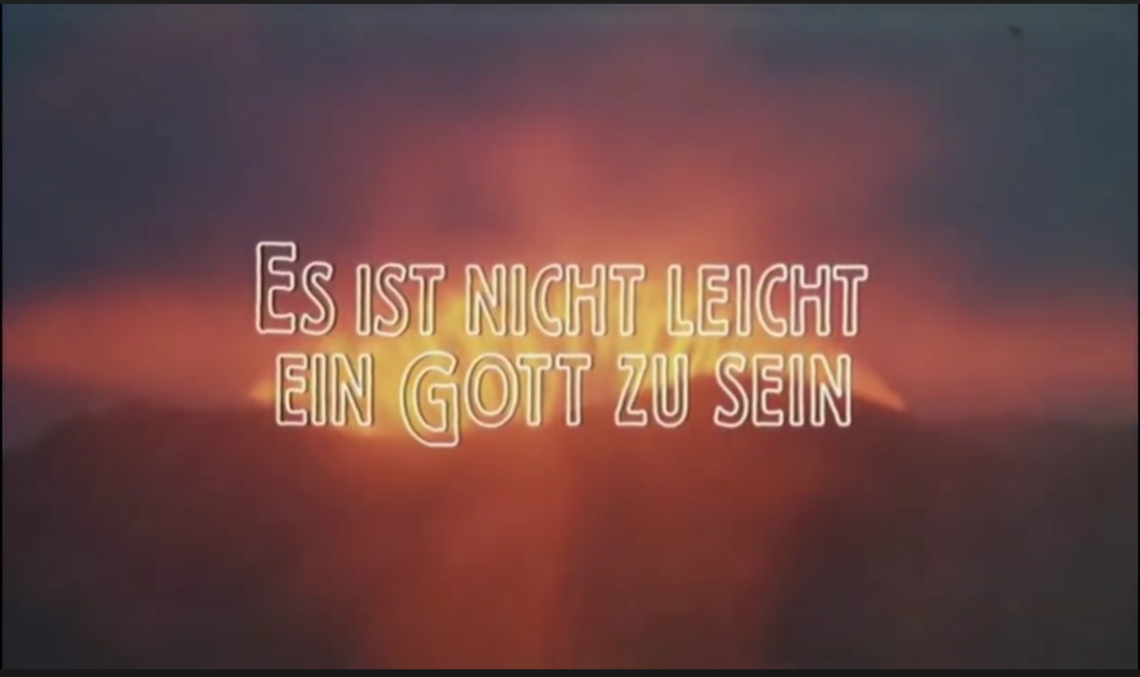
#481 – Hard to be a God (1989)
Hard to be a God (1989)
Film review #481
Director: Peter Fleischmann
SYNOPSIS: On an alien planet much like Earth, a society is undergoing a period of oppression similar to that of the middle ages of Earth. A group of scientists have been sent to observe this society, and study this event as it unfolds, with strict orders not to kill. Richard, one of the scientists, heads into the city of Arkanar as an observer, but he and his fellow observers find that staying out of the troubles of the inhabitants is more difficult than anticipated, and brings them face-to-face with emotions and feelings that humanity itself has lost…
THOUGHTS/ANALYSIS: Hard to be a God is a 1989 science-fiction film based on the 1964 novel of the same name. The film is set in humanity’s future, on an alien world where the civilisation is undergoing a period similar to Earth’s middle ages, and the rulers are cracking down on any inventors, artists, or scholars which may result in society moving into a Renaissance-era progression of society. In orbit above the planet, a human ship observes the settlement of Arkanar, and monitors a group of observers they have sent down to the planet. One such observer, Richard, takes on the identity of Rumata, a nobleman who was unknowingly to the citizens of Arkanar killed some time ago. With this identity, Richard/Rumata is able to observe a lot of the city freely, and also attempt to safeguard the scholars etc. that are being hunted. The plot centres around “Rumata” as he mingles in with the various residents of Arkanar; from the royal court to the common man, and the plot hinges on Richard becoming aware that it is impossible to remain neutral or observant when he is covered in the dirt of the city and the unguarded emotions of its people. The film proceeds very slowly through this scenario, and it is a very simple one that fills the two hour runtime by slowly immersing the viewer in the mess of the world that the humans are sent to observe. It is difficult to follow at points, but also that seems to be the point; that the struggle of daily life on this planet doesn’t neatly resolve itself into a smooth narrative.
Unlike the 2013 adaptation of the novel, here we get a glimpse of the spaceship and the state of humanity. It seems that humanity has “evolved” to a point where it has risen above the feeling of emotions, and as such look down upon the state of Arkanar as primitive and very much behind them as a society. As the film progresses, some of the scientists, who watch through a video feed implanted in Richard’s eyes, begin to feel emotions they have never experienced. It’s not the main focus of the film, but it is a neat little touch that shows how being a detached observer, as a human being, is not as easy as deciding to throw away your emotions, and that they always have the possibility of returning without control. The characters become familiar and involved with the story as the viewers do, and so when it is time for them to get involved beyond the observer role and help out the people they have lived among. I wouldn’t say it pulls this off in a perfect way, but it does enough to build up the story and setting to make this pay off. There’s some characters which don’t have that serious tone and “feel” like particular characters (the King, for one), and so I’m left wondering just how serious a viewer will take the film with some of these very stereotypical character tropes and bizarre hairstyles.
Production-wise, the film is fairly well put together: Arkanar has a distinct look and feel to it, even if its aesthetics of being shot in a desert seem very reminiscent of a lot of other films. The sci-fi elements are not the main focus, but the props and sets we do see are serviceable, if unremarkable (again, they are not the focus, so this is a good thing). With regards to making the environment look like a dirty, medieval setting, there’s effort put into getting the scenes and props right, and there’s a certain level of dirt but it does feel a bit uneven. Sometimes everyone is a bit too clean, and there are some moments when the gore comes out of nowhere and instantly unsettles the mood. I can think of two such instances: a decapitated head, and one part where a live pig is cut open and killed. I really hope that pig was a prop, but it definitely looked real…anyway, maybe I may be judging it a little harshly in this regard because the 2013 version does such an elaborate job in making the film visceral and filthy that this version can only look bad by comparison. The soundtrack, with it’s synth-heavy sounds, definitely places it in a certain moment in time, and while it’s not bad, it certainly ages it. Overall, Hard to be a God is a fairly average film with some stand-out and memorable moments, but they are few and far between across the two-hour runtime, and the plot ultimately fails to put down roots to dive the film direction and purpose. Not a bad film, but in terms of fitting the mould of cinema, it’s going to be a bit difficult for some viewers to get into.


